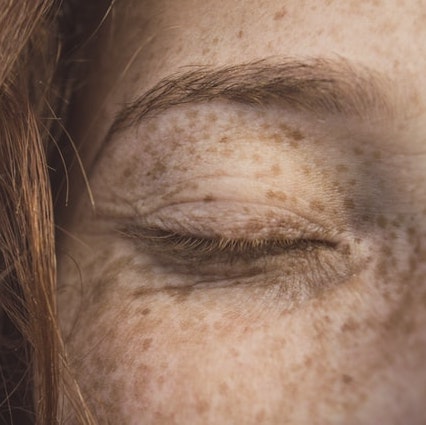6 WAYS IN WHICH CBD SUPPORTS TREATMENT OF SKIN DISORDERS
IF YOU HAVE READ OUR PREVIOUS ARTICLE, YOU PROBABLY KNOW THAT THE ENDOCANNABINOID SYSTEM, ALSO CALLED THE ECS, HELPS MANAGE PHYSIOLOGICAL PROCESSES IN OUR BODIES.
THE ECS SYSTEM IS STRONGLY INVOLVED IN THE MAINTENANCE OF HOMEOSTASIS OF THE SKIN, SUPPORTING IT IN THE PROCESS OF BARRIER FORMATION, REGENERATION AND MAINTAINING SKIN BARRIER INTEGRITY.
YOU ARE CONTAINED WITHIN YOUR SKIN. . .
Skin is your body’s largest organ, which acts as a protective barrier and self-insulating, waterproof shield. Additionally, skin is the organ responsible for the sense of touch, allowing you to experience the external world, making any skin-related disorders a burden to the patient. The ECS dysregulation has been shown to contribute to a multitude of prevalent skin diseases such as psoriasis, dermatitis, acne, hair loss and pigmentation disorders (1). As a consequence, therapies which aim to support regulation of the ECS have been put in clinical trials, and recent results have found that ECS focused therapies can have a positive effect on multiple skin conditions and symptoms.
CBD'S ANTI-INFLAMMATORY PROPERTIES
Inflammation is a part of the immune process which happens when the body is combating harmful stimuli like pathogens or irritants. Sometimes, the body can misidentify an irritant (or the self as an irritant), mistakenly causing inflammation in regions of the body. Reoccurring skin inflammation is a common problem among patients with dermatological diseases. CBD helps to restore homeostasis in the body, supporting the immune system in maintaining its correct function, including correct recognition of irritants. CBD has been shown to exhibit anti-inflammatory properties, which means that CBD-based therapies are useful in treatment of skin inflammation (2;3).
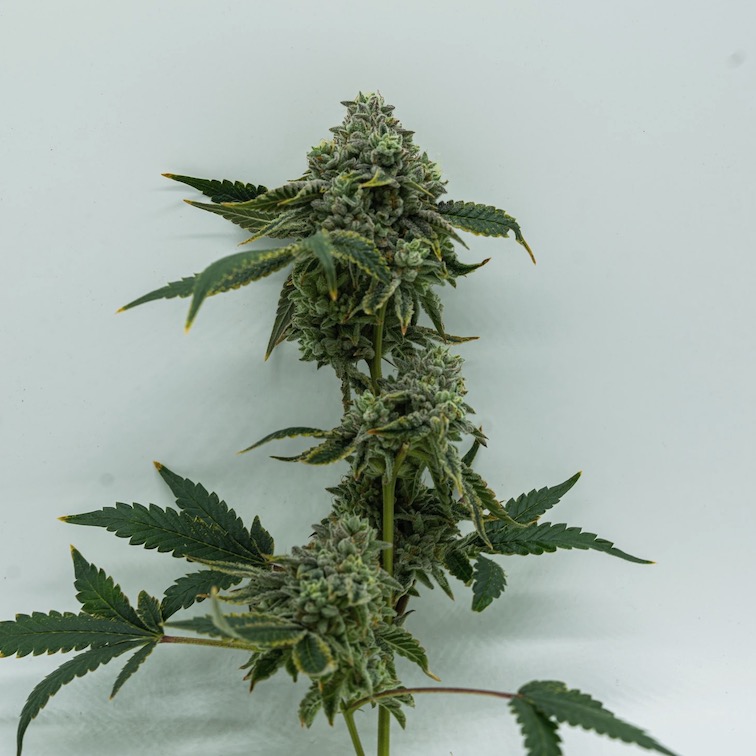
CBD & SKIN BARRIER
Sebaceous glands are located in the skin, which are responsible for the production of an oily and waxy substance known as sebum. This sebum contributes to the formation of the physicochemical barrier, which protects against microbe and other external irritants entering the body. Sebaceous glands misfunction can result in e.g. acne (if glands produce too much sebum) or atopic dermatitis (if glands do not produce enough sebum). CBD has been shown to have a modulatory effect on sebaceous glands, meaning that it can regulate the amount of sebum being produced. This modulatory ability, combined with its anti-bacterial and anti-fungal properties, makes it a promising substance in acne and atopic dermatitis treatment (1).
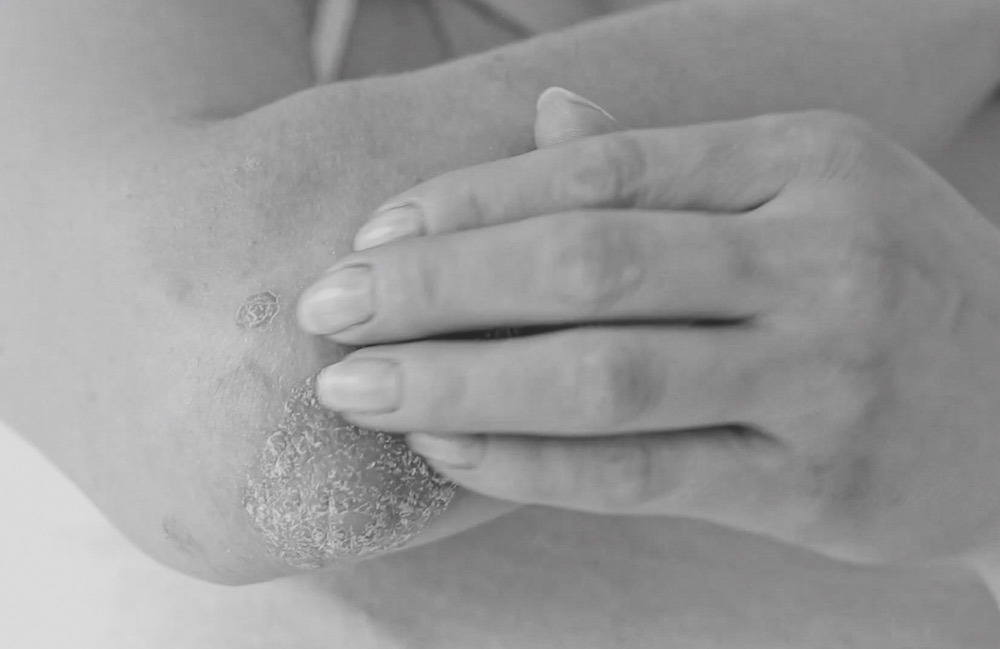
CBD & PAIN
Pain is an unpleasant feeling brought on by intense or damaging stimuli. Chronic inflammatory disease can lead to pain, which can make day to day life of patients unbearable. Cannabidiol has been shown to have an analgesic effect (4), and since it helps to reduce the inflammation and ease the itch, it can lead to a long-term relief from the pain of the lesions. Moreover, cannabinoids may be especially effective in inhibiting chronic pain in comparison to the acute pain.

CBD & WOUND HEALING
Wound healing is a complex process that involves the repair of skin or other body tissues after injury. Cannabidiol (CBD) has been proven to have antibacterial and antifungal effects (5). Combined with its aforementioned supportive qualities in skin barrier development, CBD can aid in the process of wound healing in patients with psoriasis and dermatitis.
CBD & SKIN CELL REGROWTH
Psoriasis is a skin disorder which causes skin cells to multiply faster than normally, resulting in a skin build up into red, flaky patches and causing itch and discomfort. Research suggests that CBD has a potential in psoriasis treatment, due to its ability to inhibit the process of skin cell proliferation, meaning that it slows down and normalizes the skin cell growth process (6).
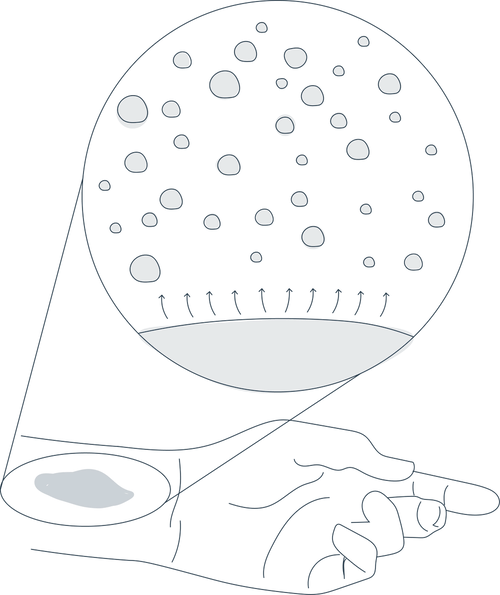
CBD & ITCH REDUCTION
Itchiness is a common struggle among sufferers of dermatological diseases. The severity of this symptom is multifold, not only does it cause discomfort, but also sleeplessness and scratching (1) which can further harm the skin. CBD, applied topically, has been shown to help eczema and psoriasis patients, by clearing the lesions and providing relief from the itch (1). Since itch causes both physical and mental discomfort, treatment of this symptom is a crucial part of eczema and psoriasis therapies.
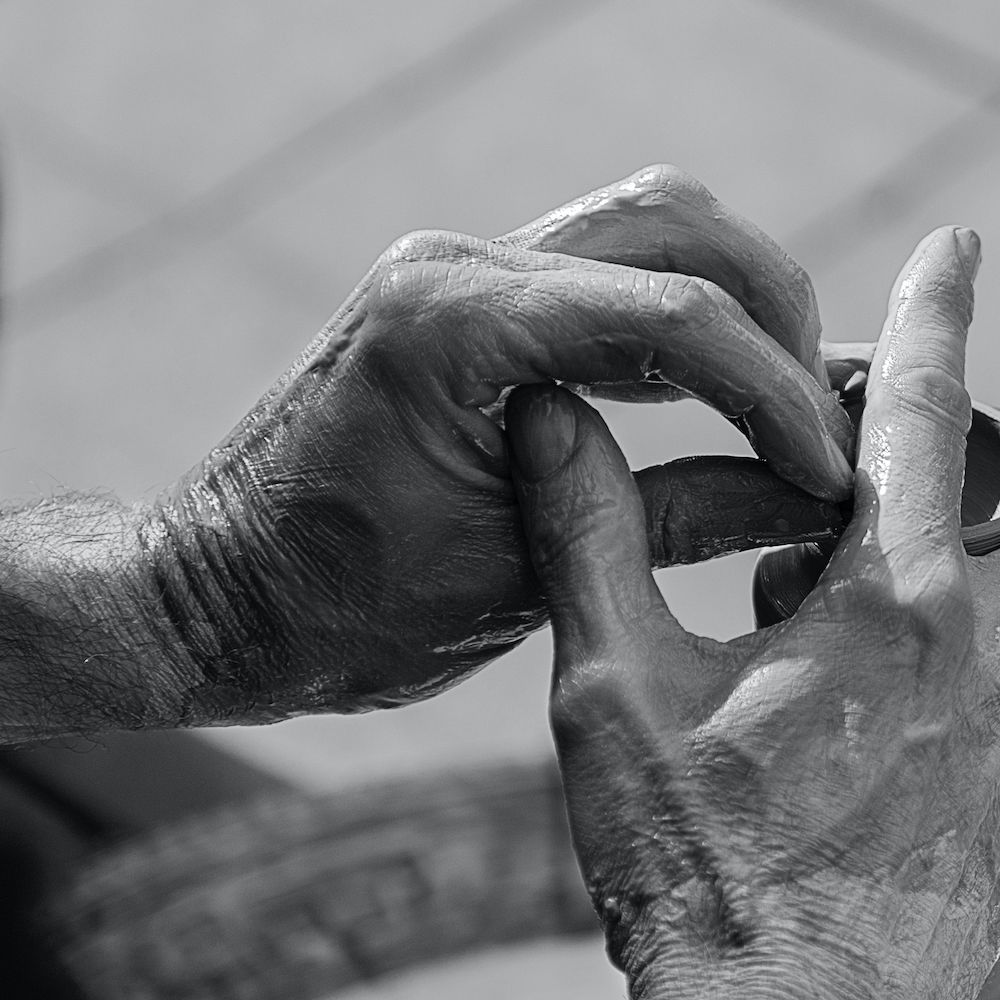
SUMMARY
Research shows that CBD poses multiple opportunities in treatment of dermatological diseases and disorders, such as psoriasis or acne. Through its anti-inflammatory, and wound healing properties it can help to treat the lesions. Meanwhile, thanks to its modulatory effect on sebaceous glands and cell growth, it can help your skin regain its natural rhythm. Finally, thanks to pain and itch relief properties it can soothen you..
DISEASE DATABASE
Are you craving more disease-specific information?
- Tóth KF, Ádám D, Bíró T, Oláh A. Cannabinoid Signaling in the Skin: Therapeutic Potential of the “C(ut)annabinoid” System. Molecules. 2019 Mar 6;24(5):918. doi: 10.3390/molecules24050918. PMID: 30845666; PMCID: PMC6429381.
- Palmieri, B et al. “A therapeutic effect of cbd-enriched ointment in inflammatory skin diseases and cutaneous scars.” La Clinica terapeutica 170,2 (2019): e93-e99. doi:10.7417/CT.2019.2116
- Scheau C, Badarau IA, Mihai LG, Scheau AE, Costache DO, Constantin C, Calina D, Caruntu C, Costache RS, Caruntu A. Cannabinoids in the Pathophysiology of Skin Inflammation. Molecules. 2020 Feb 4;25(3):652. doi: 10.3390/molecules25030652. PMID: 32033005; PMCID: PMC7037408.
- Baswan SM, Klosner AE, Glynn K, Rajgopal A, Malik K, Yim S, Stern N. Therapeutic Potential of Cannabidiol (CBD) for Skin Health and Disorders. Clin Cosmet Investig Dermatol. 2020 Dec 8;13:927-942. doi: 10.2147/CCID.S286411. PMID: 33335413; PMCID: PMC7736837.
- Vučković S, Srebro D, Vujović KS, Vučetić Č, Prostran M. Cannabinoids and Pain: New Insights From Old Molecules. Front Pharmacol. 2018 Nov 13;9:1259. doi: 10.3389/fphar.2018.01259. PMID: 30542280; PMCID: PMC6277878.
- Appendino G., Gibbons S., Giana A., Pagani A., Grassi G., Stavri M. (2008). Antibacterial cannabinoids from Cannabis sativa: a structure-activity study. J. Nat. Prod. 71 1427–1430. 10.1021/np8002673
- Wilkinson JD, Williamson EM. Cannabinoids inhibit human keratinocyte proliferation through a non-CB1/CB2 mechanism and have a potential therapeutic value in the treatment of psoriasis. J Dermatol Sci. 2007 Feb;45(2):87-92. doi: 10.1016/j.jdermsci.2006.10.009. Epub 2006 Dec 6. PMID: 17157480.
Reviewed by:
Lina Babickaite
M.Sc. Biomedical Science
References
1 Hemp Biomass | Green Valley (greenvalleysa.it)
2 https://greenleaflab.org/heavy-metals/
2 https://greenleaflab.org/heavy-metals/
3 Contaminants of Concern in Cannabis: Microbes, Heavy Metals and Pesticides | SpringerLink
4 How to Identify Mycotoxins in Cannabis | Articles | Analytical Cannabis
5 Hazenkamp A. An evaluation of the quality of medicinal grade cannabis in the Netherlands. Cannabinoids. 2006; 1(1):1-9.
6 Sedmikova M., Reisnerova H., Dufkova Z., Barta I., Jilek F. Potential hazard of simultaneous occurrence of aflatoxin B1 and ochratoxin A. Veterinary Medicine – Czech. 2001; 46(6): 169-174
7 https://ec.europa.eu/info/food-farming-fisheries/sustainability/environmental-sustainability/low-input-farming/pesticides_en
Reviewed by
Lina Babickaite
M.Sc. Biomedical Science

